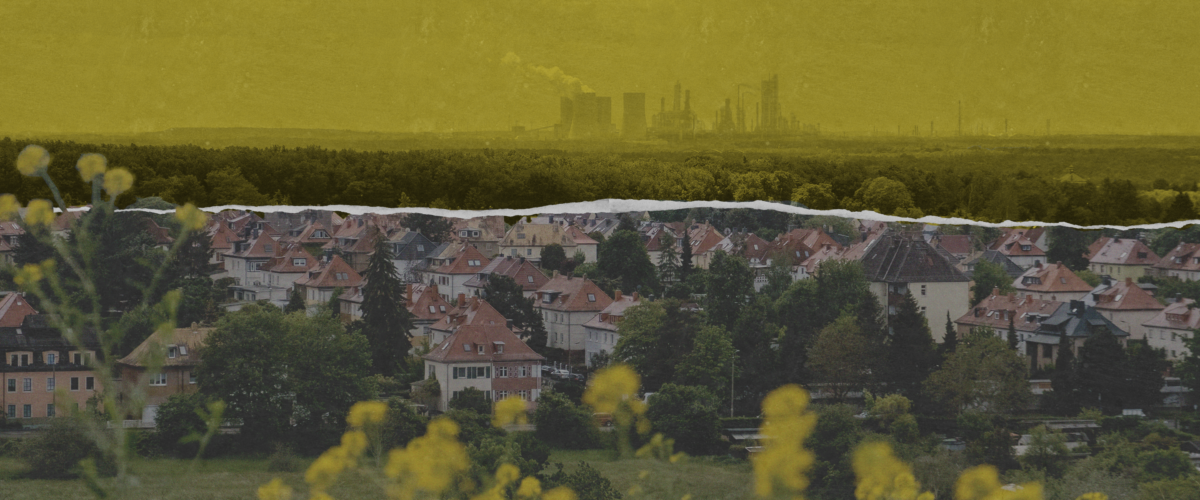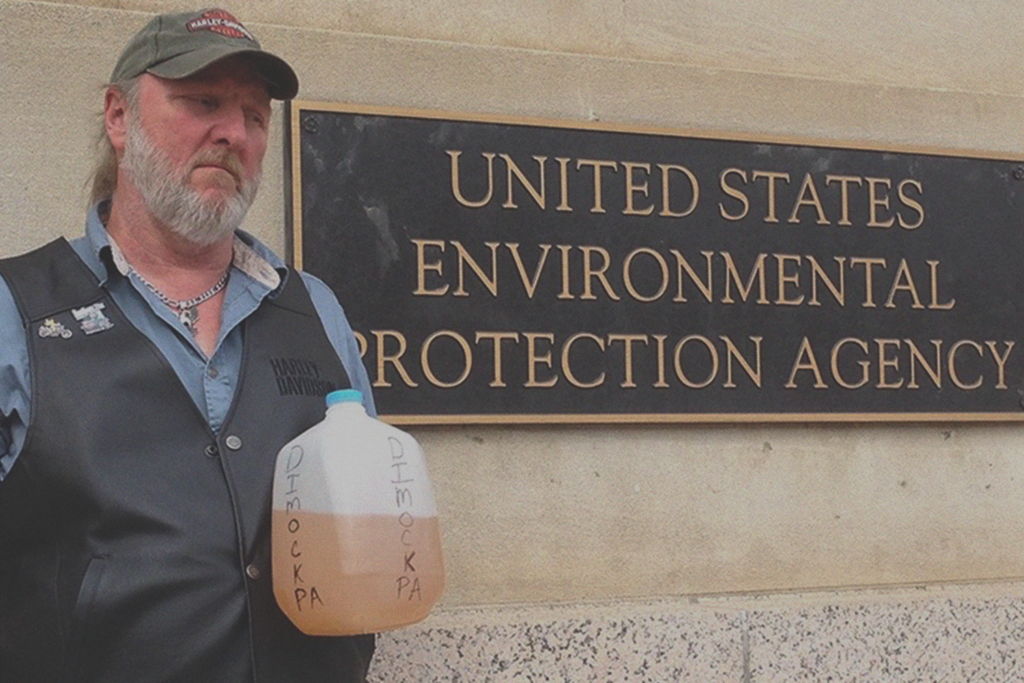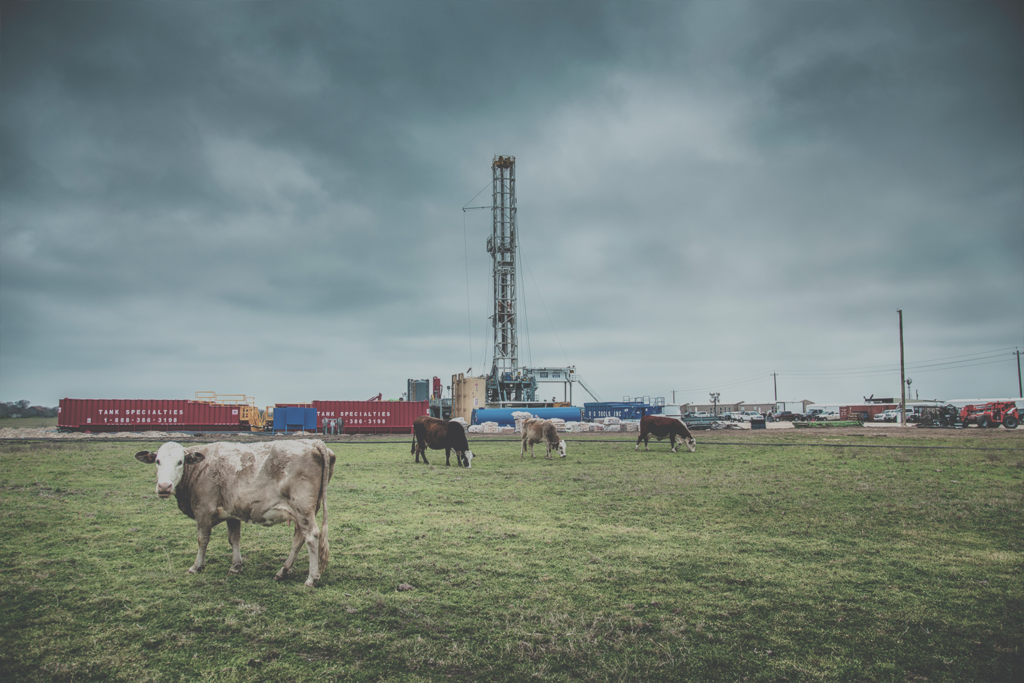The Sickening Toll of Fracking in Pennsylvania
Published Sep 28, 2023

New research from the PA Department of Health reaffirms what we’ve always known: Fracking is unacceptably risky. We must ban it now.
Stomach-churning smells. Mysterious rashes. Never-ending headaches and nausea. Faucets that produce brown, sludgy water; water that erupts into flames at the touch of a lighter. Anxiety, uncertainty, anger, fear.
These have become parts of everyday life for families living near fracking operations. And while lawmakers and regulators should be protecting these communities, they’ve bowed to powerful corporations instead.
Since the start of the fracking boom, Southwestern Pennsylvania has been a hotspot for gas. Fracking companies flooded in, promising jobs, tax revenue, and community investment.
But as problems mount, the truth has become clearer. Fracking threatens families’ health, wellbeing, and lives, and we need leaders to join our fight against it.
New Study Builds on Old News: Fracking Risks Our Health and Safety
In 2019, the Pittsburgh Post-Gazette reported on a devastating anomaly. Over the past decade, Southwestern Pennsylvania saw rates of Ewing sarcoma three times higher than normal. In human terms, that meant 27 people were diagnosed with this rare bone cancer in a small four-county area. Six lived in a single school district.
The report drew attention to what folks in the region already knew — something was horribly wrong. And many community members suspected that fracking was involved.
For more than a year, families and organizers called for the state to investigate. In 2020, the governor’s office finally funded two major studies. The findings were published in August.
Even given all we know about fracking, the results were shocking. The study linked fracking to worse asthma attacks, lower infant birth weights, and lymphoma, a rare type of cancer. It found that children living within a mile of a fracking well are five to seven times more likely to develop lymphoma than those living further from wells.
Fracking’s Mystery Chemicals Endanger Our Health

Over the years, research has linked fracking to a long list of health problems. For almost a decade, Concerned Health Professionals of New York have gathered peer-reviewed studies on fracking and health. Most recently, it counted 2,239 studies that find evidence of harm.
Much of fracking’s dangers come from the fracking fluids injected deep underground to help pull trapped gas to the surface. This toxic cocktail includes water, sand, and various harmful chemicals.
Out of the ones we know, over three-fourths of these chemicals harm the skin, eyes, and other organs. They also wreak havoc on our hormones, brain, heart, and more. Moreover, at least 55 chemicals used in fracking are known to cause cancer.
But companies keep many of their fracking chemicals secret, as allowed by federal law. They’re considered “trade secrets”; the logic is that making them public may give competitors a business advantage.
This is a prime example of lawmakers putting profit over people. We deserve to know what chemicals may be getting into our water and poisoning our air.
Fracking’s harms go beyond drilling and fracking fluids. Wastewater, pipelines, compressor stations (which maintain pressure through long-distance pipelines), and gas-fired power plants all pose their own threats.
For example, the wastewater that fracking produces not only contains fracking fluids; it’s been found to contain heavy metals and radioactive material.
This waste is usually transported to a new site and “disposed of” by injecting it into wells deep underground. It’s often carried in trucks that can and have spilled, and it’s been spread on roads to deice them in the winters.
The injection process and wells themselves can leak, creating yet more pathways for toxic, radioactive wastewater to contaminate the environment and threaten our health.
Fracking Has Captured the Halls of Power
As the dangers of fracking become more well-known, calls for stronger protections have grown. Recently, PA state legislators have introduced bills to regulate fracking waste as hazardous, mandate more distance between homes and wells, and ban oil and gas wastewater injection.

Yet, these protections aren’t coming strong or fast enough to protect families. Many are shot down before they even get off the ground. And that’s because of the influence of the gas industry on our state’s politics — including the regulators charged with protecting us.
For example, in 2014, former employees at the PA Department of Health (DOH) revealed they’d been told to avoid speaking to residents who called with concerns about fracking and mysterious illnesses.
More recently, in 2020, a grand jury report condemned the Department of Environmental Protection (DEP) for failing to protect Pennsylvanians from fracking. It placed much of the blame on gas companies’ heavy influence over the agency.
The trend continued in October 2022, as the DOH and the University of Pittsburgh planned to meet with communities to discuss their study — the one released in August that linked fracking to asthma and lymphoma — which was in-progress at the time.
But at the eleventh hour, Pitt pulled out of the meeting. The DOH soon followed suit, denying grieving families the opportunity to speak with researchers.
This was upsetting, but not surprising. Pitt’s connection to the fracking industry has been well-documented. For example, members of the university’s Board of Trustees include former and current executives and board members of several oil and gas companies.
That includes EQT, the country’s biggest natural gas producer, which owns or leases hundreds of thousands of acres in Pennsylvania for fracking. On top of trustees’ connections to the company, the university has received hundreds of thousands of dollars in donations from EQT in recent years.
Governor Josh Shapiro Needs to Stick to His Promises on Fracking
Gas giants have profited from endangering Pennsylvania families, and state regulators and lawmakers have let them get away with it. Our new governor is more of the same.
Throughout his time as attorney general, Josh Shapiro has positioned himself as a fighter in the people’s corner. He has stood with frontline communities against oil and gas companies and helmed the grand jury report condemning the DEP. He campaigned on a track record of holding polluters accountable and promised stronger regulations as governor.
But now, Governor Shapiro has changed tack. He’s thrown his support behind plans for a regional hydrogen hub that would rely on fracking. And in the wake of the recent DOH study, his administration said all the right things — but its actions have been disappointing.
After his own administration released its shocking findings, Shapiro’s only response was to announce that Pennsylvania was “open for business.” That of course really meant, “Open to using taxpayer dollars to support dirty industries like fracking and hydrogen.”
Our Leaders Need to Put People Over Profit
Next week, we’re joining allies for the People’s Hearing on Climate Change at the Pennsylvania State Capitol. At this event, people from across the state will speak about their concerns, hopes, and fears about climate issues — including the impacts of fracking.
On October 2, Governor Shapiro must be in Harrisburg at the People’s Hearing to listen to his constituents. And then, he needs to take real action to protect families from climate change, fossil fuels, and fracking.
We need leaders who will put people over profit every time, not just when it’s easy.
We’ve known for years the toll that fracking takes on our health and environment. Food & Water Watch has fought since the start of the fracking boom for a nationwide ban.
To protect our families and our environment, we need to stop letting corporations wreak havoc on our state. Governor Shapiro must end fracking.
Tell Governor Shapiro that the only way to truly protect Pennsylvanians is to end fracking!
Enjoyed this article?
Sign up for updates.
TO TOP


